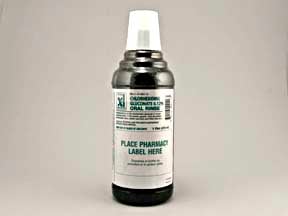
Periogard Coupons & Savings Card – Discount Prices from $3.14
Brand for: Chlorhexidine gluconate
My prescription
Edit
118ML of 0.12%, Chlorhexidine Gluconate (1 Bottle)
Select pharmacy

CVS
$18.78
COUPON PRICE
Walmart
$3.14
COUPON PRICE
Albertsons
$4.65
COUPON PRICE
Walgreens
$4.90
COUPON PRICEPeriogard savings card
Show this card to your pharmacist
Walmart
$3.14
BIN
ID
PCN
GRP
019876
LHD42D8CAD
CHIPPO
LHX
Powered by
Related antiseptics prescriptions
Related antiseptics prescriptions
Price history for Periogard (brand) & Chlorhexidine Gluconate (generic)
1 Bottle, 10ML of 0.12%
Average retail price for Periogard
Average retail price for Chlorhexidine Gluconate
Average SaveHealth price for Chlorhexidine Gluconate
Our price history data is based on aggregated prescription data collected from participating pharmacies in America. Our prescription data updates daily to reflect the latest price changes. If you notice a missing data point, it means there wasn't sufficient data available to generate a monetary value for that date.
Over the last 12 months, the average discount price of Periogard is $3.87 using the SaveHealth savings card. That's an average savings of 72.34% on Periogard with our discount card.
*Retail prices are based on pharmacy claims data, and may not be accurate when we don't have enough claims.
Periogard (Chlorhexidine Gluconate) dosage forms
Dosage Quantity Price from Per unit 10ML of 0.12% 1 Cup $2.55 $2.55 10ML of 0.12% 2 Cups $2.61 $1.30 10ML of 0.12% 3 Cups $2.66 $0.89
| Dosage | Quantity | Price from | Per unit |
|---|---|---|---|
| 10ML of 0.12% | 1 Cup | $2.55 | $2.55 |
| 10ML of 0.12% | 2 Cups | $2.61 | $1.30 |
| 10ML of 0.12% | 3 Cups | $2.66 | $0.89 |
What is PerioGard used for?
PerioGard is used as an oral rinse to help reduce bacteria in the mouth, which can aid in the treatment of gingivitis and help prevent gum disease. It is often prescribed by dentists to manage oral hygiene and reduce inflammation and bleeding of the gums.
Why has PerioGard been discontinued?
PerioGard has not been discontinued. It is still available as a prescription mouth rinse used to treat gingivitis. If there are any concerns about its availability, it is advisable to check with local pharmacies or healthcare providers for the most current information.
What is the main disadvantage of chlorhexidine mouthwash?
The main disadvantage of chlorhexidine mouthwash is that it can cause tooth staining and discoloration of the tongue with prolonged use. Additionally, it may alter taste perception temporarily and can lead to increased tartar formation.
Does PerioGard help with infection?
PerioGard, which contains chlorhexidine gluconate, is an antimicrobial mouth rinse that can help reduce bacteria in the mouth and is often used to manage gingivitis. While it can help control bacterial growth and reduce inflammation, it is not specifically indicated for treating infections. For an actual infection, a healthcare provider should be consulted for appropriate treatment.
Can chlorhexidine treat an infection?
Chlorhexidine is an antiseptic that can help reduce bacteria on the skin and prevent infections, but it is not used to treat existing infections. It is often used for cleaning wounds, pre-surgical skin preparation, and oral rinses to reduce bacteria. For treating an active infection, a healthcare provider may prescribe antibiotics or other appropriate treatments.
